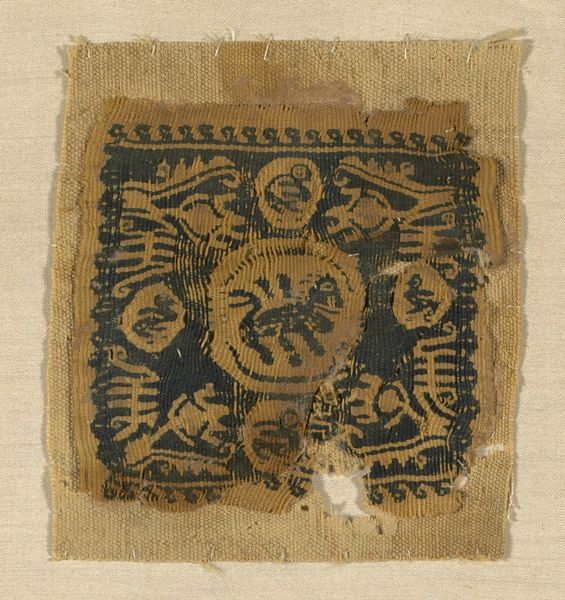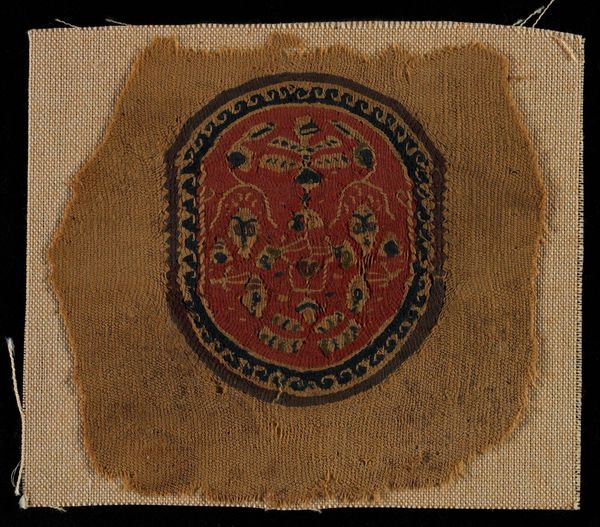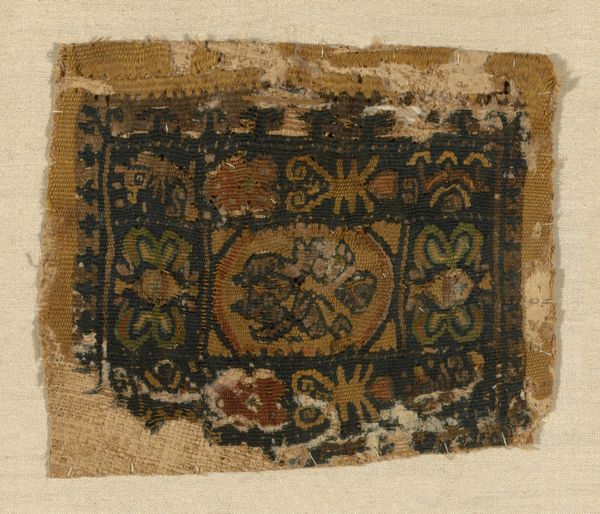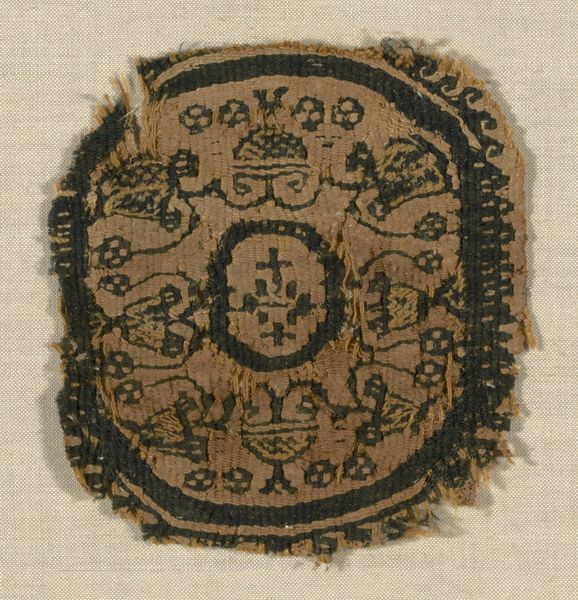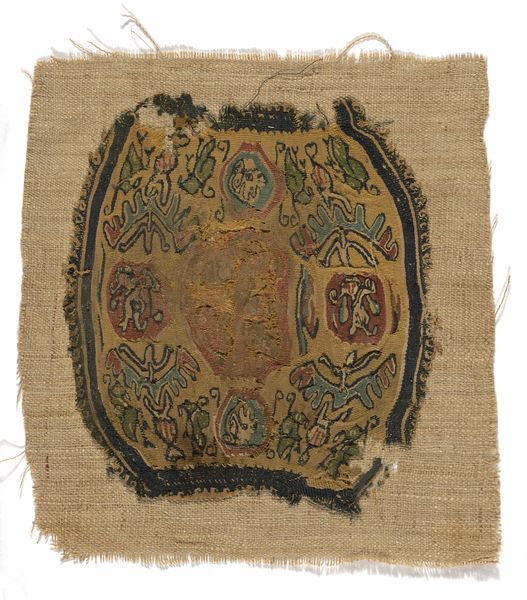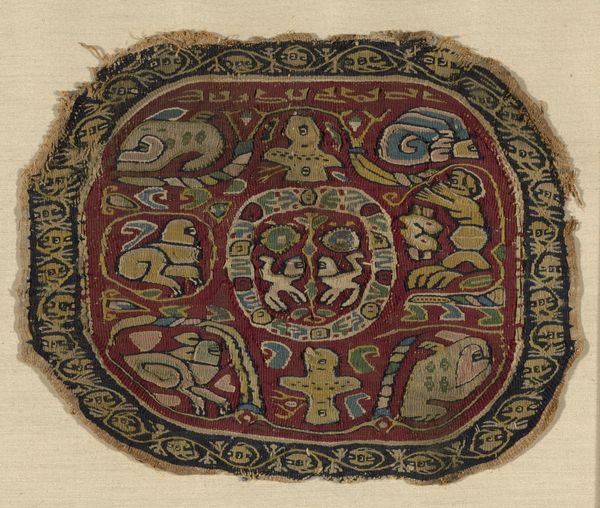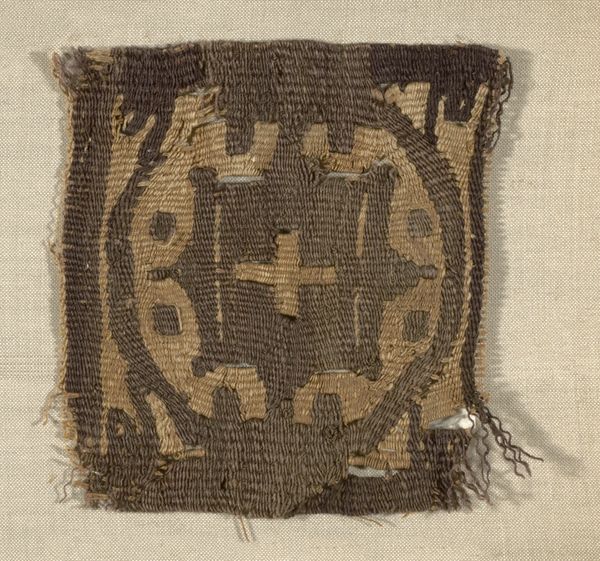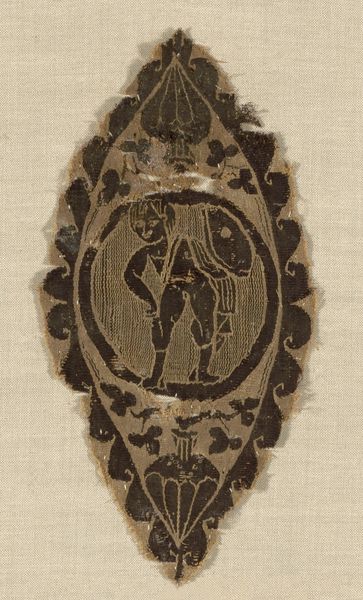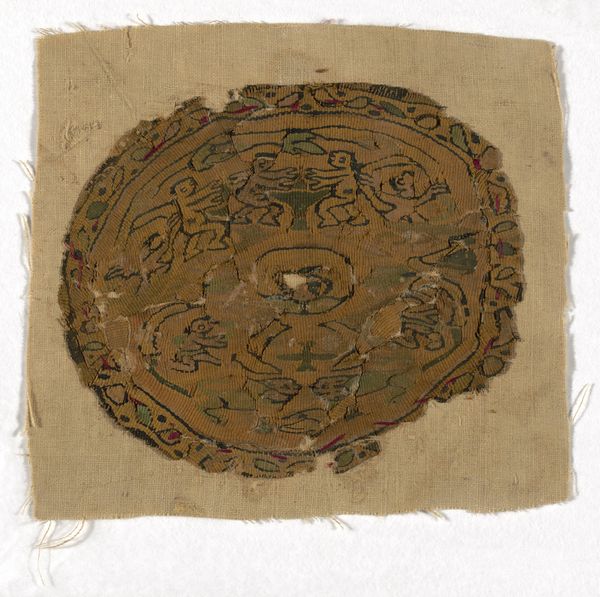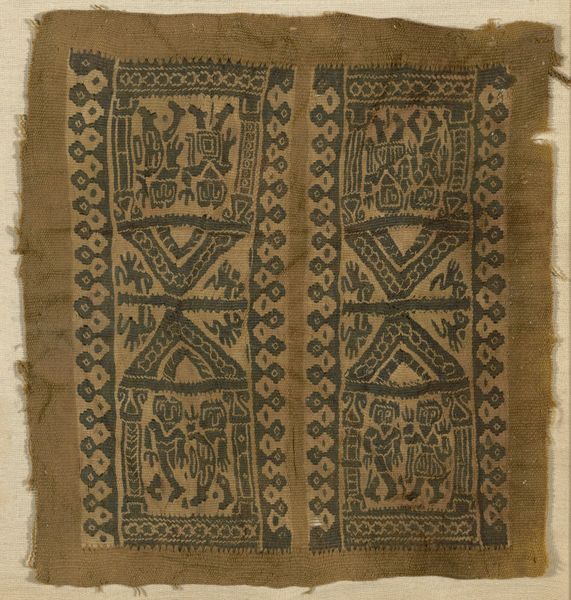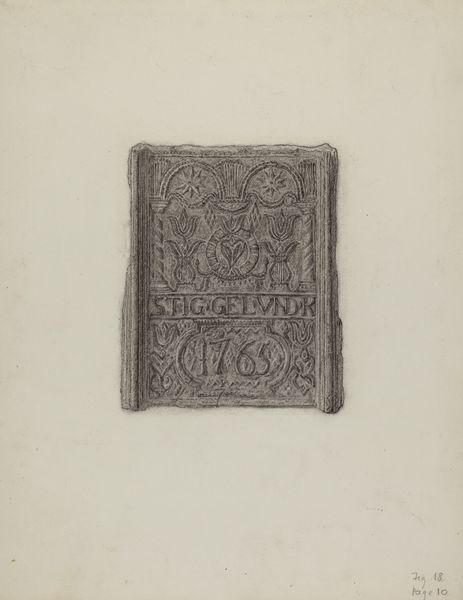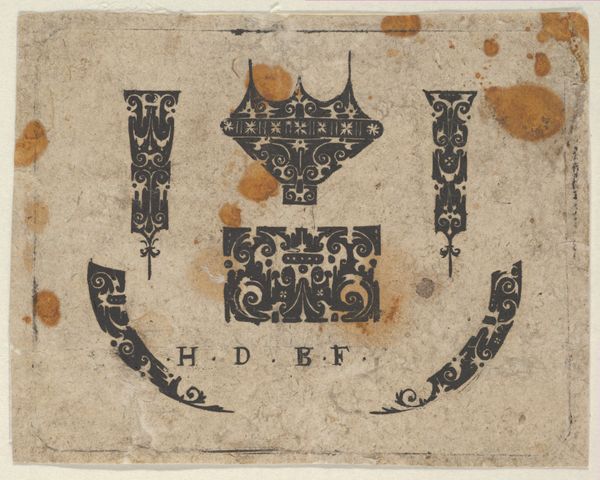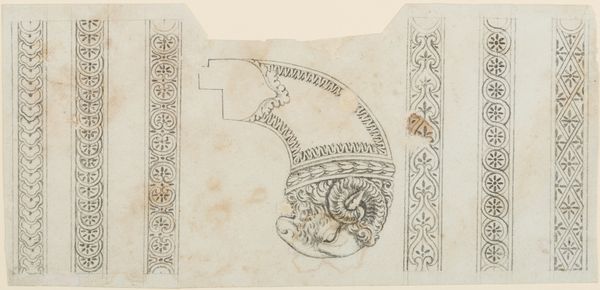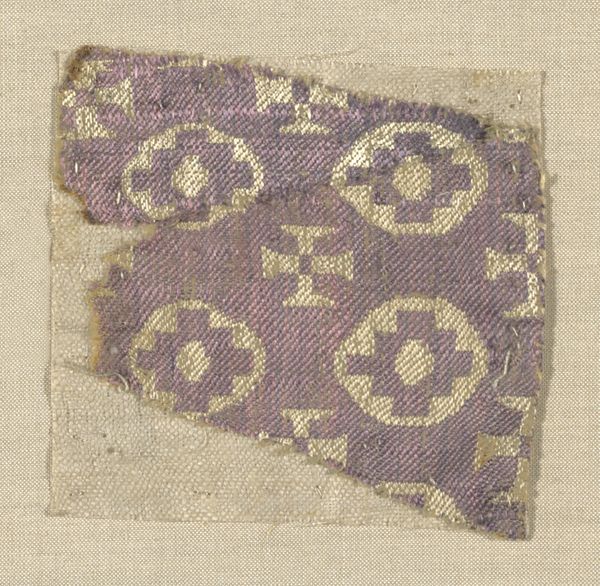
Square Panel Roman period (30 B.C.– 641 A.D.), 4th/5th century
0:00
0:00
fibre-art, weaving, textile
#
fibre-art
#
weaving
#
textile
#
ancient-egyptian-art
#
ancient-mediterranean
Dimensions: 10 × 10 cm (4 7/8 × 4 7/8 in.)
Copyright: Public Domain
Editor: This object, entitled “Square Panel,” dates from the 4th or 5th century, so it's from the Roman Period in Egypt. It’s textile art; it seems so fragile. What stands out to you about this piece? Curator: For me, the key to understanding this work lies in the materiality and production itself. The very act of weaving, transforming raw fibers into intricate patterns, speaks volumes about the culture that created it. We need to consider who wove this, and the labor it involved. Editor: I see. The detail is remarkable for something so old and, presumably, made by hand. How does the medium relate to its culture and history? Curator: These textiles weren't just decorative; they served very practical purposes in daily life, from clothing to coverings. And the motifs, the figures, are all important pieces of evidence for understanding the socio-economic environment in which Coptic weavers operated. Do you see the damage along the edges? Editor: Yes, the fraying looks pretty severe, but I think that adds another layer. Curator: Exactly! The fragment's survival, its very material decay, it’s important evidence, too, of use, wear, and its passage through time. Considering how labor was divided and consumed could help to deconstruct art history’s hierarchical assumptions and highlight the ingenuity and labor involved. Editor: That is a fascinating approach. Thinking about it as a remnant with inherent meaning in the fiber is quite different from looking at it just as an aesthetic piece. Curator: It’s a shift from celebrating “fine art” to valuing all forms of material production. Thinking about things that way opens up all kinds of new perspectives.
Comments
No comments
Be the first to comment and join the conversation on the ultimate creative platform.
